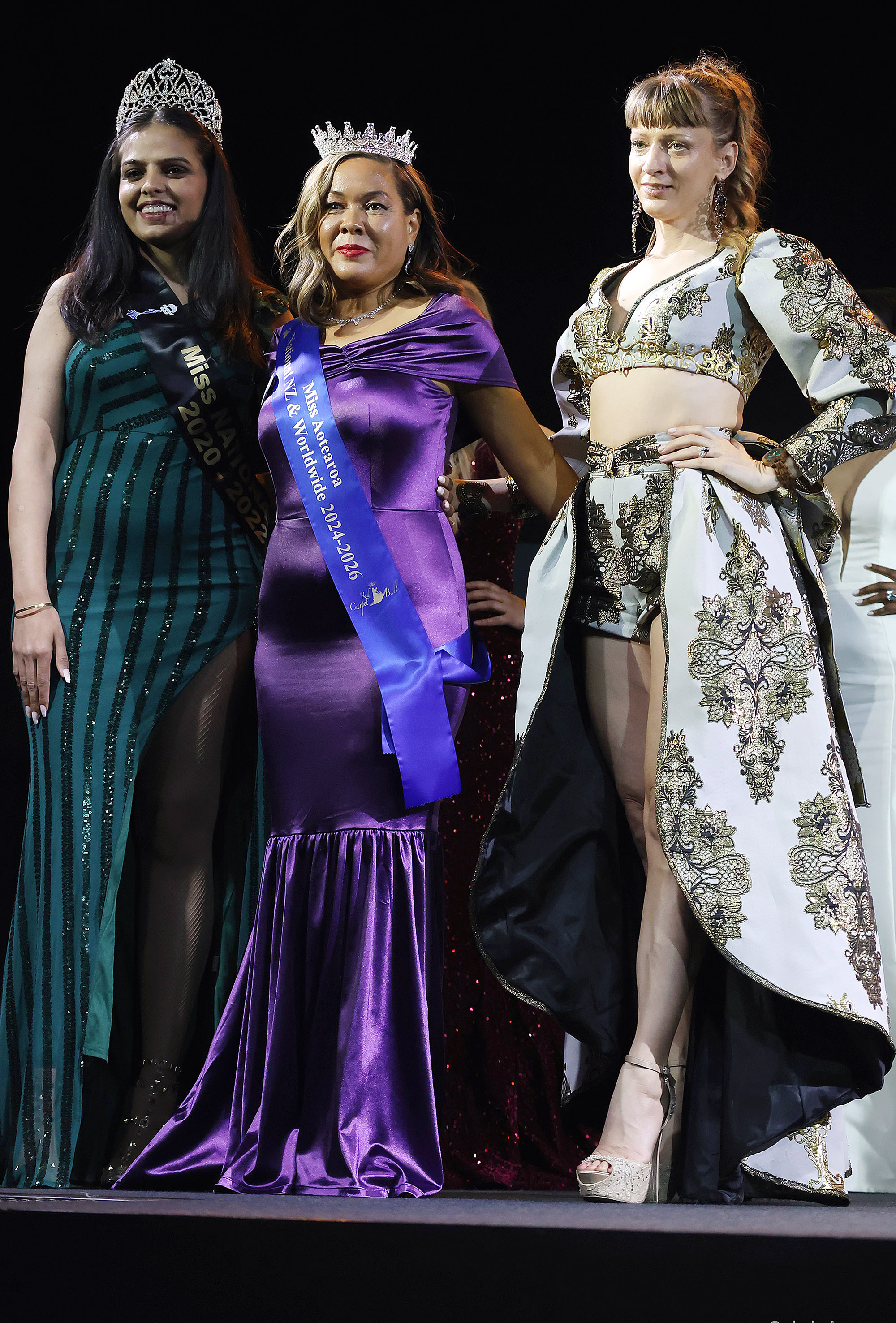Crowning a historic moment for Māori

SIGNIFICANT CROWNING: Newly crowned Miss Aotearoa New Zealand Deliah Whaitiri, with Miss National NZ 2020-2022 Harjit Kaur, left, and pageant director Olga Hudson. Photo Vlado Petrovic
.
In a year marked by historic shifts in the political and cultural landscape of Aotearoa, Delilah Whaitiri has been crowned Miss Aotearoa National New Zealand 2024.
The crowning, held in Auckland on November 23, coincides with the growing momentum of Toitū Te Tiriti, a national framework reinforcing the principles of Te Tiriti o Waitangi.
For Miss Whaitiri, a former Beacon reporter, the timing of her win feels deeply significant.
“It’s surreal to be crowned Miss Aotearoa during such a critical time for our people,” she said.
“I wasn’t even vying for this title, so to receive it now feels like it’s part of a much bigger purpose. It’s a reminder of the role we hold as tangata whenua and the responsibilities that come with it.”
The journey to the crown wasn’t without its challenges.
At one point, Miss Whaitiri considered withdrawing from the competition due to the financial and emotional strain.
However, support from her whānau, particularly her cousin Bianca Fallon, kept her grounded.
“She reminded me to stay mauri tau—calm and balanced—throughout the process,” she said.
“Pageantry is so much more than wearing a crown. It requires resilience, planning, and an unwavering belief in your purpose.”
Her success is a reflection of her whakapapa, which she says has carried her through every challenge. “Winning this title is about honouring my tīpuna and using the platform to uplift others. It’s not just my victory—it’s for my people.”
The Miss Aotearoa title holds immense cultural weight, and Miss Whaitiri is determined to deepen her connection to te ao Māori during her reign.
“Being Māori isn’t something you earn—it’s in your whakapapa. But stepping into this role has made me realize the importance of learning and growing in te reo Māori and tikanga Māori. It’s a journey I’m excited to continue.”
The crown is more than a title for Miss Whaitiri, it’s a commitment to honour her tīpuna, uplift her people, and lead with humility.
“This journey isn’t about being perfect,” she said. “It’s about being willing to learn, to grow, and to serve. That’s what being Miss Aotearoa means to me.”
Her vision includes using her platform to empower rangatahi, particularly Māori and Pasifika youth, to embrace their identity and unlock their potential. Already a co-facilitator for Tipu Skills for Life, a programme supporting young girls aged 9-11, she has seen firsthand the transformative power of cultural knowledge and emotional resilience.
“This program is life-changing,” she said. “It’s about teaching self-worth, managing emotions, and embracing growth. Many of our whānau haven’t had access to this kind of information before, and seeing it impact not just the girls, but their families is incredible.”
The timing of Miss Whaitiri’s crowning couldn’t be more meaningful. With the Toitū Te Tiriti discussions underway, the role of Māori as tangata whenua is being reaffirmed on a national scale. “This moment feels like a turning point for Aotearoa. As Māori, we are asserting our place and our voice in a way that’s long overdue.”
For Miss Whaitiri, this alignment of personal and national milestones underscores the broader purpose of her reign. “This title isn’t just about me—it’s about showing our rangatahi that they can lead, that their culture and identity are strengths, not barriers.”
Looking ahead, she plans to take her work nationwide, travelling to schools and alternative education centres to share messages of empowerment and resilience. “I’ll be speaking to groups, including single mothers, about my personal transformation and the power of knowing your worth. It’s about service, not recognition.”
Miss Whaitiri also envisions creating an indigenous pageant to celebrate the beauty, resilience, and leadership of young Māori and Pasifika men and women. “It’s about more than physical beauty—it’s about culture, identity, and the courage to lead with authenticity.”
Additionally, she plans to complete her book, I Am, which explores themes of identity and intergenerational trauma. “So many of our young people struggle with who they are because of disconnection from their whakapapa. By understanding our roots, we can begin to heal and help the next generation thrive.”